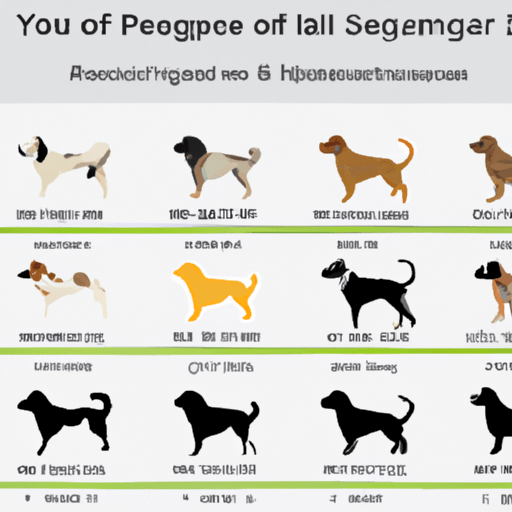“`markdown
How Old Do Dogs Get?
When it comes to our furry friends, we want nothing more than to keep them living a long, healthy life. Understanding their lifespan can help you as a caregiver to provide the best possible care.
Understanding Dog Age
Dogs age differently than humans. A common misconception is that one human year is equal to seven dog years. However, the first two years of a dog’s life are actually equivalent to 24 human years.
Here is a breakdown:
- 1 dog year = 15 human years
- 2 dog years = 24 human years
- Every year after that is equivalent to approximately 4-5 human years
Factors that Affect a Dog’s Lifespan
Just as with humans, various factors can impact a dog’s lifespan:
- Breed – Larger breeds tend to have shorter lifespans than smaller ones.
- Genetics – Certain breeds have genetic predispositions to specific health conditions.
- Diet and exercise – A balanced diet and regular exercise can significantly increase a dog’s lifespan.
- Preventive care – Regular vet visits can help catch and treat potential health issues early.
The Oldest Living Dogs
While the average lifespan for dogs is around 10-13 years, some dogs have been known to live significantly longer.
| Name | Breed | Age |
|---|---|---|
| Bluey | Australian Cattle Dog | 29 years |
| Bella | Labrador Retriever | 29 years |
| Taffy | Welsh Collie | 27 years |
Caring for an Aging Dog
As your dog ages, they may require special care. Here are a few tips:
- Regular vet visits
- Adjusted diet and exercise routine
- Mental stimulation, like puzzles and games
- Extra love and attention
Frequently Asked Questions
Q: Do all dogs age at the same rate?
A: No, smaller breeds tend to live longer than larger breeds.
Q: What can I do to help my dog live longer?
A: Regular vet visits, a healthy diet, and exercise can help extend your dog’s life.
Q: How can I tell if my dog is getting old?
A: Signs of aging in dogs include greying fur, less energy, and more frequent health issues.
Remember, knowing your dog’s age in human years can help you provide the best care for them as they grow older. After all, they’re not just pets, they’re part of the family.
“`



